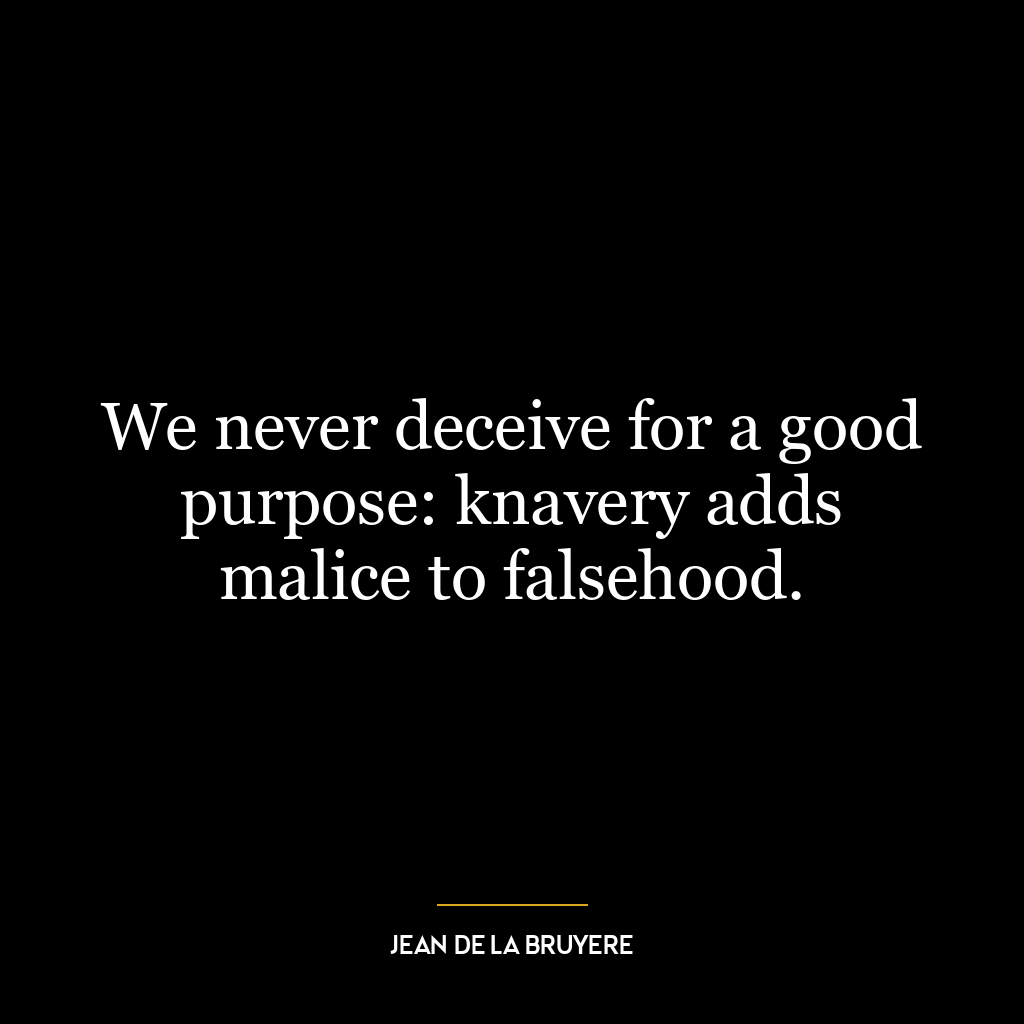Malice scorned, puts out itself; but argued, give a kind of credit to a false accusation.
“Malice scorned, puts out itself; but argued, give a kind of credit to a false accusation” is a profound statement that delves into the nature of malice and how it is best dealt with. The quote suggests that if we ignore or scorn malice, it loses its power and fades away, but if we engage with it, we inadvertently give it credibility and strength.
The first part of the quote, “Malice scorned, puts out itself,” implies that malice, when disregarded or belittled, loses its potency. It is like a flame that needs fuel to keep burning. If you don’t feed it with your attention or reaction, it will eventually extinguish itself.
The second part, “but argued, give a kind of credit to a false accusation,” suggests that if you engage with malice, especially in the form of false accusations, you inadvertently lend it some legitimacy. By arguing against it, you acknowledge its existence and create a platform for it to thrive. This can lead to the false accusation gaining more attention and possibly being believed by others.
This idea is particularly relevant in today’s world of social media and instant communication. For instance, when a celebrity or public figure is faced with false accusations or malicious comments online, they often have to decide whether to respond or ignore them. According to this quote, the best course of action might be to scorn or ignore the malice, as responding could give it unnecessary attention and credibility.
In terms of personal development, this quote can help guide how we deal with negativity or malice in our lives. It suggests that we should not waste our energy engaging with malice or false accusations. Instead, we should focus on positive and productive actions, letting the negativity extinguish itself. This attitude can lead to a more peaceful and focused life.








